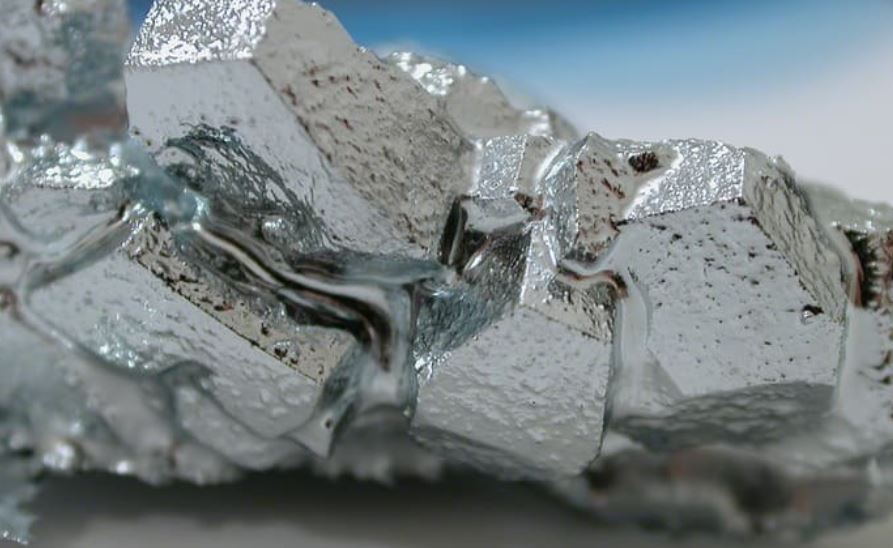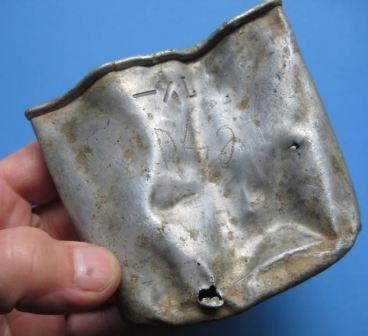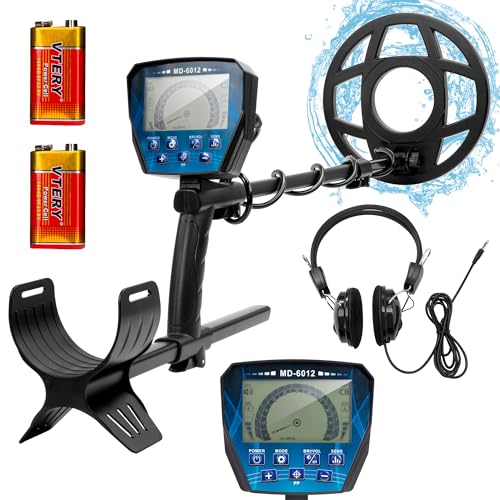
Do Metal Detectors Work On Aluminum? In a word, ‘yes’. But how well the machine can target the aluminum, depends on a few things.
Each metal detector on the market is different, and depending on the settings will detect most
In a word, ‘yes’. But how well the machine can target the aluminum, depends on a few things.
Each metal detector on the market is different, and depending on the settings will detect most metals, whether accidental or intentional, you will encounter while you are out detecting.
Now obviously there are a few metals and items that you want to come across when out metal detecting and some you don’t.
Due to their very nature, different types of metals cause metal detectors to react differently. Even the same metal can give off different signals depending on things like its purity, shape, and the soil conditions it is buried in.
This can make things very difficult for the inexperienced detectorist when they first start metal detecting.

So back to the question of do metal detectors work on aluminum?
Now to understand and answer this question fully, we need to take a look at the various types of metals and why they may cause your machine to react differently.
The Different Types of Metal You Will Encounter While Metal Detecting
Ferrous Metal
Ferrous metals by their very nature contain iron and thus have magnetic properties. Because of this, any metal detector can detect ferrous metals, unfortunately, the problem with these metals is that most of the time they are worthless.
Due to chemical processes, ferrous metals will also rust when exposed to air. Ferrous metals are often found in many settings due to their usage in industry and examples of these are:
- Alloy steel
- Carbon steel
- Cast iron
- Wrought iron (this doesn’t rust due to its purity)
Non-Ferrous Metal
These do not contain iron and metals that come under this bracket are silver, brass, zinc, and gold. They are more corrosive resistant than ferrous metals and generally lighter and more valuable.
Aluminum is also in this category and due to the lack of iron they do not have magnetic properties, so needs a particular range of settings, on metal detectors, to be able to be detected. Examples of non-ferrous metals include:
- Stainless Steel
- Carbon Steel
- Alloy Sheets
- Cast Iron
Are Non-Ferrous Metals Detectable?

Now as we have established, non-ferrous metals have no, or very few iron composites, so they have no magnetic qualities.
This means that an electromagnetic field emitted by metal detectors would just pass right through the object.
While this is true, these types of metals and aluminum are good conductors and luckily for us, it is the conductivity of a target, rather than the magnetic properties, that make these materials detectable with metal detectors.
But What is Aluminum Then?
You will find aluminum in many alloys. It is relatively cheap and lightweight but also strong. It can be found in many things such as household and industrial products.

Light durable and functional are the reasons that this material has become a key part of engineering over time. And unfortunate for us, it is the most widespread metal on earth.
Pure aluminum does not occur naturally only being produced as late as 1824. It wasn’t until the late 1800’s that engineers learned how to produce it on an industrial scale.
Some Interesting Things About Aluminum
- It Weighs One-Third Less Than Steel Does
- It Won’t Rust
- It’s the World’s Most Abundant Metal
- It’s Recyclable
- It’s Resistant to Heat
Do You Need to Use a Specific Type of Metal Detector to find Aluminum?

In a word ‘no’. Any decent metal detector will find aluminum. You may have to make a few adjustments, should your machine allow this, or you can find the correct pre-set modes by consulting the manual.
If you do have any issues with finding the correct setting when out metal detecting, change the detector to relic mode or even the all-metal mode and you should be ok with that.
Metal detector settings for aluminum
Just about all metal detectors have individual functionality for different metals. Depending on the settings, the detectors may be configured or modified to find aluminum.
All metal detectors have a minimum of three options to configure: Discrimination, Sensitivity, and Ground Balance.
Generally speaking, metal detectors set for aluminum have many issues because there are more signals to receive from them compared to other materials.
Since there are several metal components of aluminum that are available in our surroundings, it is difficult to find specific objects.
Using the discrimination settings to find aluminum
The best way to go about finding aluminum with metal detectors is by using the Discrimination setting. This will help to filter out certain signals so that you can focus on the ones that are more likely to be from aluminum.

Additionally, it is important to have the sensitivity set high enough so that you can pick up on smaller pieces of aluminum when metal detecting .
Ground balance is another setting that can be adjusted in order to help with finding aluminum objects.
By compensating for the ground conditions, the metal detector will be more likely to pick up on small pieces of aluminum that might otherwise be missed.
What is the Discrimination on a Metal Detector?
Most of the time when we go out treasure hunting with our trusted metal detectors, we mainly find ring tabs and some rusty nails, rather than that pot of gold.
To help to overcome this issue most detectors allow you to adjust the discrimination settings to filter out the trash, so you can focus more on the valuable targets.

Discrimination is the machine’s ability to tell the difference between the different types of metals you will encounter.
When set correctly, it greatly improves your chance of unearthing the treasure that you want and less of the stuff you don’t.
Doing this process also teaches you the various tones and sounds you need to be aware of, enabling you to dig less and be more productive in your sessions.
Should You Even Be Looking For Aluminum?
I don’t and I don’t know anyone who does. The vast majority of aluminum finds will be worthless, but with one exception, aluminum tokens.
Around the 1890s aluminum trade tokens began to appear and were popular until well into the 1930s. If you were to unearth one of these, it could have some value.
So bear in mind that if you dig up a coin and it feels a lot lighter than normal, you could have found an aluminum token.
So What Metals Can You Not Detect With A Metal Detector?
All metal detectors work based on electromagnetic currents. This means that they give out electromagnetic fields into the ground and then listen for the waves that come back from conductive targets.
One of the most difficult metals to detect with metal detectors is in fact, stainless steel.
The reason behind this is that stainless steel has very poor electrical conductivity and by definition, has a low magnetic permeability.
The result of this is that the faint signal that is omitted is so weak as to be identified.
Conclusion
So do metal detectors detect aluminum?
Yes, they do, and as I’m sure you realize now.
But know that your chances of finding aluminum when metal detecting is quite high, depending on the environment, but hopefully you can adjust the setting to suit your needs.
Aluminum is probably not the most valuable treasure you will dig up with your metal detector but it all comes down to what type of things you are looking for.
If you are looking to make your fortune from detecting, then it is probably best avoided, but always be on the lookout for those aluminum tokens.
Frequently Asked Questions
Can metal detectors detect aluminum?
Yes, aluminum can be picked up by a metal detector. It emits a strong signal and is easy to detect. However, the detector must be properly configured to pick up the signals from aluminum objects.
How do metal detectors work aluminum?
Metal detectors work by emitting a signal ( check out metal detectors for the hearing impaired here ) and then detecting any objects that respond to the signal. For aluminum, the detector must be properly configured to pick up the signals from aluminum objects.
This means that the settings on the metal detector must be adjusted to account for the strong signals that aluminum emits.
Can aluminum be picked up by a magnet?.
Aluminum is not attracted to magnets. Magnets are only attracted to materials that are made of iron or have a high ferrous content. Aluminum has a low ferrous content and is not attracted to magnets
How can I tell if something is aluminum or silver?
Use a metal detector. If the item is aluminum, the detector will sound a specific tone that is different from the tone it makes for silver.
You can also use a magnet to test for aluminum. Aluminum is not attracted to magnets, so if the item is pulled towards the magnet, it is likely made of silver.
How can you tell the difference between aluminum and stainless steel?
There are a few key things to keep in mind when trying to identify aluminum:
- Aluminum is more malleable than stainless steel.
- Aluminum is a good conductor of electricity and heat.
- Aluminum is silver in color, while stainless steel is gray or silver-gray.
Is tin more rare than aluminum?
Tin is more rare than aluminum, but both are quite common. Tin is used in a variety of ways, including as a coating for other metals to prevent corrosion. Aluminum is used in a wide range of products, from foil to aircraft parts.














